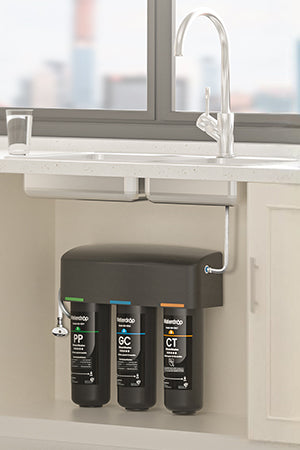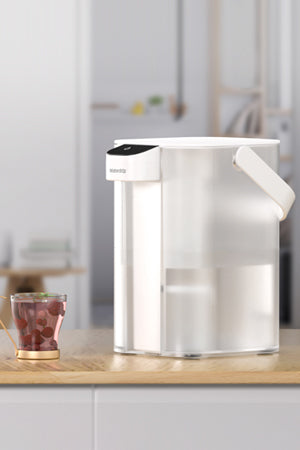Clean and safe drinking water is important for health and many Singaporeans are wondering if it’s worth buying a water filter for their homes. With so many options in the market, how do you know if a water filter will benefit you? This blog will go through the key points Singaporeans should consider when deciding if buying a water filter is a good investment.
What Are the Benefits of a Water Filter?
One of the main reasons people buy water filters is to improve the taste and smell of tap water. In Singapore, tap water is safe and meets international standards but some may notice a chlorine taste or slight metallic flavor. A good water filter can remove chlorine and other impurities and give you fresher and better tasting water.
Water filters also reduce contaminants that may be present occasionally such as sediments,
heavy metals like lead (from old pipes), and certain chemicals. Although Singapore’s water supply is highly regulated and safe, having a water filter adds an extra layer of protection and peace of mind. For households with infants, immunocompromised individuals or elderly family members, this may be especially important.
How Do Water Filters Work?
Water filters work by trapping impurities as water passes through a filtration medium such as activated carbon, ceramic or reverse osmosis membranes. The type of filter you choose depends on the contaminants you want to remove. For example:
- Activated carbon filters reduce chlorine, pesticides and volatile organic compounds (VOCs).
-
Reverse osmosis systems remove dissolved solids like salts, heavy metals and microbial contaminants.
- Ceramic filters target bacteria and sediments.
Understanding your local water quality and filtration needs will help you choose the right type of filter.
Is Singapore’s Tap Water Safe to Drink Without a Filter?
Singapore’s tap water is produced by PUB and goes through rigorous treatment processes including sedimentation, filtration and disinfection. It meets
the World Health Organization’s (WHO) standards and local regulations for potable water. Many residents drink tap water directly or boiled without any reported health problems.
However, some users may be sensitive to the taste or residual chlorine and older buildings with aging pipes may introduce impurities occasionally. In such cases, a water filter can enhance safety and taste. Overall, tap water is safe but a filter is a personal choice based on preference, health considerations and convenience.
There are several types of water filters in Singapore:
- Faucet-mounted filters: Easy to install and filter water as it comes out of your tap.
- Countertop filters: Larger units that sit on your kitchen counter and filter water before use.
- Under-sink filters: Installed beneath the kitchen sink, they connect to your tap for a more discreet solution.
- Reverse osmosis (RO) systems: Use multiple stages of filtration and produce very high-purity water.
- Water filter pitchers: Portable and affordable, they offer basic filtration for immediate use.
Each option varies in price, maintenance and filtration capability so choose one based on your needs and budget.
How Much Does a Water Filter Cost in Singapore?
Basic water filter pitchers start from SGD 30 to SGD 100. Faucet-mounted filters cost between SGD 100 to SGD 300. High-end under-sink or
reverse osmosis systems can cost SGD 500 to over SGD 1,000 including installation. Maintenance costs such as replacing filter cartridges should also be considered.
Investing in a good filter is worth it if you want cleaner, better tasting water and potential health benefits. But remember to balance your budget with the level of filtration you need.
Are There Any Health Benefits to Using a Water Filter?
Using a water filter can reduce exposure to chlorine, heavy metals, microplastics and other low-level contaminants. Although Singapore’s water is safe, some studies suggest that removing these impurities can improve overall taste and may reduce risks of certain health issues related to water quality.
Filtered water can help people with sensitive stomachs or skin problems linked to hard water or chlorine. It also allows for cleaner water to cook with which can enhance food flavor and nutrition absorption.
What Are the Environmental Benefits of Using a Water Filter?
Switching to filtered tap water can reduce reliance on bottled water, help cut down plastic waste and carbon footprint associated with bottled water production and transportation. Using a water filter is a greener option that promotes sustainable living in Singapore.
How Do You Maintain and Care for a Water Filter?
Proper maintenance is crucial for a water filter to work effectively. This usually involves regular replacement of filter cartridges according to the manufacturer’s guidelines, typically every 3 to 6 months. Cleaning the filter housing and checking for leaks or wear-and-tear helps prolong filter life. Neglecting maintenance can lead to clogged filters and bacterial growth.
Whether or not to get a water filter depends on you, your health, and your budget. Here are scenarios where a water filter might be a good idea:
- You notice your tap water tastes or smells bad.
- You have infants, the elderly or immunocompromised in your household.
- You want to reduce plastic bottle waste and live green.
- You want extra peace of mind on water purity and safety.
- Your tap water tastes fine and you trust the water quality, you don’t need a filter but would still benefit from one if convenience and taste matters to you.
Takeaways
In summary, it is worth investing in a home water filtration system for your family. A
reverse osmosis water filter is the best choice for safe and clean drinking water since the RO technology can remove almost all impurities and bacteria from your tap water. If there is no enough room under the sink, a countertop water filter can provide you with the same high-quality drinking water without waiting.



































































